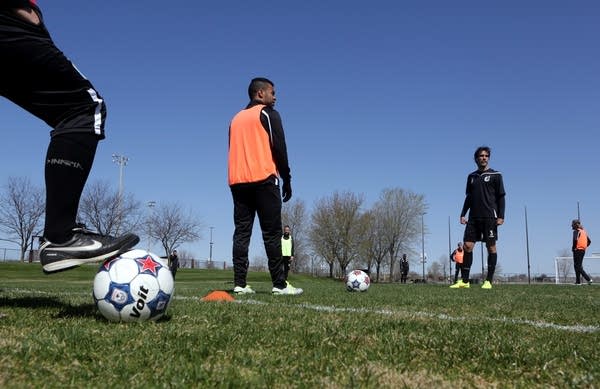Despite Hodges' opposition, soccer stadium could receive tax break

Minnesota United FC players listened before a drill at the team's practice in Blaine, Minn., April 23, 2015.
Jeffrey Thompson | MPR News
Go Deeper.
Create an account or log in to save stories.
Like this?
Thanks for liking this story! We have added it to a list of your favorite stories.


